-
Teaching and Learning Where Others Might Not Have Chosen
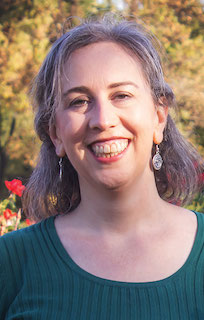 Written by Michelle J. Goff, Founder and Director of Iron Rose Sister Ministries
Written by Michelle J. Goff, Founder and Director of Iron Rose Sister Ministries“Here am I, send me!” (Is. 6:8)
Stubborn, independent, and strong-willed have described me since early childhood. Facing a challenging character quality in her daughter, my mom remembers hearing a helpful interpretation of “Train up a child in the way he should go…” (Prov. 22:6) during her child-raising years. Instead of the continual frustration of squelching the strong will of four daughters, find out the way each of them should go and point them in a Kingdom direction. Or, “Train up a child in the way SHE should go…” (emphasis added).
If Michelle was going to be stubborn, may she stubbornly cling to God’s Word. If her way was independent, may it be as an independent follower of Christ, especially when those around her were not following Him. If she should continue her strong-willed spirit, may her will align with God’s will and uncompromisingly obey Him.
Stubborn independence can also be used to describe pioneers. Uncharted territory must be discovered by those willing to go where others haven’t or won’t. In missions and in ministry, I have always felt called to go where others were less willing or able to go. When I first felt called into full-time missions, God was leading me to help establish a congregation in north Bogotá.
“Here am I, send me!”
The doors in Colombia were beginning to open as a safer place for North Americans to live, while many still feared the horror stories of kidnappings. North Bogotá was the direction in which the capital city was expanding. Yet there were still many doubts, especially about sending a single woman to serve there.
When I shared with my parents my desire to go and to serve in Colombia, as my Christian brother and sister they affirmed that they honored my desire to answer His call… Who were they to argue with the same God they served? Additionally, my mom said, “As your Christian sister, I support you and am proud of you. But as your mom, Aaaaaaaahhhhhhh! (I’m scared!)”
I appreciated her honesty. And I continued to pray for wisdom in answering that call. God allowed me to hold onto that dream, the seed He had planted. I was able to be a part of the North Bogotá congregation’s first meeting in March 2000, their one-year anniversary in 2001, and continual visits three to four times a year through late 2006.
By early 2000, when I first started visiting Bogotá, I had already been to Venezuela several times, where the political situation was deteriorating (opposite of Colombia where things were growing and strengthening). In 1999, I had also begun work with a new congregation being established in Cozumel, México. Phil and Donna Waldron were the on-the-ground missionaries invested in the work there. I coordinated campaign groups from Harding University and the North Atlanta Church of Christ, where I worked at the time.
There was always a long list of those interested in partnering with the work there in Cozumel. Some of you may remember that it was in Cozumel that I first learned to drive a stick shift because that was the only way to get to a Bible study (story in Ch. 11 of One Single Reason: Conversations with Single Women).
Even though the opportunities in Cozumel grew and I felt qualified to serve there, I felt more called to go where others were less likely to go. Having already achieved a certain mastery level of Spanish, being dark haired with dark eyes, I could blend more easily into the variety of skin colors, even as fair skinned as mine, found in Venezuela and Colombia.
“Here am I, send me!”
The pioneering spirit God gave me as an oldest child, through my innate stubbornness, independence, and strong will, allowed me to answer that call. God used the passion He gave me for languages to develop a very natural Venezuelan accent.
And now, as I strive to learn Portuguese, I wonder how God will equip me, as He did Isaiah, because of a willing spirit to serve. God excels in equipping the called instead of calling the equipped. That way, He gets all the glory.
Iron Rose Sister Ministries began because God revealed a tremendous need, stepping into an area of ministry that no one else was addressing. Women long to be in authentic relationships, but often lack the tools to do so. We exist to equip women to connect to God and to one another more deeply.
I have taught and learned in more diverse contexts that I would’ve ever asked or imagined. But God… I love that phrase! But God, in His infinite wisdom, longs to teach us in places that others may have never chosen to learn. Yet when we meet Him there, when we answer His call, He is waiting to reveal His truths in deeper and broader ways,
Where will you be open to letting God use you to teach or to learn today?
Remember to answer, “Here am I, send me!” -
Thank You for Showing Me God's Love
 Written by Nilaurys Garcia, volunteer with Iron Rose Sister Ministries in Canada
Written by Nilaurys Garcia, volunteer with Iron Rose Sister Ministries in CanadaWe all need people who nurture us; people we can count on in the most critical moments, both good and complicated. Knowing that we are not alone and that we can count on someone fills us with strength to face many situations. In most cases, these people can be our family, but many of us also find that support in friends—that “family” that we can choose—and give them access to the most vulnerable parts of our beings. Something I learned several years ago is that good friendships are important. Having the right people by our side can make us feel safe, loved, and can help us achieve our goals while we remain at peace. Conversely, being with people who drain, exhaust, and negatively influence us can lead us to make unwise choices and turn away from the truth. As Proverbs 18:24 says, "One who has unreliable friends soon comes to ruin, but there is a friend who sticks closer than a brother” (NIV).
For me, this year has been focused on connections; on cultivating friendships and relationships that will help me connect with who I am, and especially to connect with God. What I have learned, and am especially grateful for, is relationships that make it possible to share experiences, advice, and the same love for spiritual things. They benefit you in a way that no other relationship can. If there is someone special that comes to your mind right now, the Lord has blessed you greatly, and I invite you to take a few minutes to thank them for their friendship and to thank God for putting them in your path.
I want to thank those who have given me a word of encouragement when I needed it most; that unexpected message saying that I was remembered and prayed over, wishing me well. I thank those friends who, although I have done my best to pretend that I am well, can look me in the eye and tell me, “I will pray for you and when you are ready, I will be there to listen to you.” I thank those friends who have become part of my family, my life, and my being, who are willing to lovingly sit with me, unselfishly looking out for my well-being. And, above all, when I need it, they can make me see what I am not doing well or what I must improve. I thank those close friends who celebrate my achievements because they know the effort it took, who jump for joy with me, and know how to dry my tears in times of difficulty. Whenever I think about these relationships, I imagine that their prayers, words of encouragement, and friendship have the same effect that Aaron and Hur had on Moses as they held up his arms when he was too tired to hold them up himself (Ex. 17:12).
I do not particularly need to talk daily with these friends, but they indeed are a constant presence in my life and have marked me so deeply. They are the ones I turn to in those moments of immense joy and extreme difficulty. I am greatly blessed to have friendships who have the same spiritual beliefs and whose presence in my life helps bring me closer to the presence of our God every day and challenge me to be a better version of myself. These friendships are the answers to the prayers I have made asking God to help me stay on His path and that He will send those who are not afraid to come find me wherever I have strayed.
To you, friend, thank you for showing me God's love at all times, and thank you for being willing to share my struggles and burdens. Thank you for being the support I need to grow closer to God every day.
-
Thankfulness in Relationships: To Jesus Your Friend and Savior
 Written by Alina Stout, volunteer with Iron Rose Sister Ministries in Oklahoma
Written by Alina Stout, volunteer with Iron Rose Sister Ministries in OklahomaIt is no secret that Jesus was close to the family of Mary, Martha, and Lazarus (Luke 10, John 11-12). He was with them through a great trial in their life, and His faithfulness to them led to their devoted thankfulness to Jesus.
Mary and Martha lost their brother Lazarus to an illness. They asked Jesus to come and heal Lazarus, but Jesus waited to come until after He learned that Lazarus died. He did not arrive at Mary and Martha’s house in Bethany until four days after Lazarus had passed (John 11:1-17).
In their moment of grief, Jesus was there for Mary and Martha in the unique way that each of them needed Him as they grieved over Lazarus. They each expressed their faith in Jesus even though it was being tested by inner conflict.
Martha expressed to Jesus her battle between her faith and her grief. “If you had been here, my brother would not have died. But even now I know that whatever you ask from God, God will give you” (John 11:22, ESV). Jesus revealed a truth about Himself to Martha in response to her faith and challenged her to go one step further. He said, “I am the resurrection and the life …Do you believe this?” and she replied, “Yes, Lord; I believe” (John 11:25-27).
Mary expressed to Jesus only sorrow, revealing her grieved frustration that she knew Jesus could have done something to prevent this. “Lord, if you had been here, my brother would not have died” (John 11:32). Jesus was “deeply moved in his spirit” by her weeping and He wept with her (John 11:33-35).
Jesus was their friend in the moment they needed Him most. But as the Messiah, Jesus was able to raise their brother Lazarus from the dead!
Mary and Martha each showed their gratitude to their friend and Lord Jesus in different ways.
Martha showed Jesus gratitude by preparing a dinner for Him and His disciples. Her dinner in honor of Him was an expression of the faith that she had in Him. It is the way that she could give back to Jesus for the new life that He gave to her brother. She sacrificed her personal time and effort in order to serve Him (John 12:2).
Mary showed Jesus gratitude in a way that was also a sacrifice for her–almost a year’s wages worth of sacrifice. She anointed the feet of Jesus with expensive perfume and wiped His feet with her hair (John 12:3). Mary understood that Jesus is the source of all life. What did she lack? Nothing. When Mary sacrificed a costly perfume bottle, one that could have given her financial security if Lazarus died or could have been used for a future dowry, she chose to give it up out of gratitude for the Resurrection and the Life who will sustain her every need.
Mary and Martha each put Jesus above themselves out of faith and gratitude. They offered their personal sacrifice on Jesus’ behalf because they recognized Him as the Resurrection and the Life. If Jesus is life, then they wanted their life to honor Jesus.
Like Mary and Martha, we get to have a relationship with our Friend and our Lord and Savior, Jesus Christ. When we face trials, Jesus is there with us. He is emotionally present with us like He was with Mary. He guides us to knowledge in the truth like He did with Martha. He is present with us like a friend, but He is also our Lord. And when we overcome our trials with Jesus by our side, we are beyond grateful!
Our gratitude to our friend and our Lord and Savior oftentimes looks like sacrifice. It sure did for Mary and Martha! Out of our thankfulness for the life that Jesus has given us, our response is to devote our lives to Him.“I appeal to you therefore, brothers, by the mercies of God, to present your bodies as a living sacrifice, holy and acceptable to God, which is your spiritual worship” (Rom. 12:1).
Think about how you can devote your life to Jesus as a living sacrifice. What do you have that you can offer to Jesus? What are you willing to give up for Jesus?
Think about how you can encourage your Iron Rose Sisters to join you in your living sacrifice. Mary and Martha might have shown gratitude in their unique ways, but they showed their gratitude together at the same dinner. Is there any way that you can partner with your Iron Rose Sisters by offering your unique methods of gratitude together?
-
The Hope of Anticipation
 Written by Karoline Diogo, volunteer with Iron Rose Sister Ministries in Campo Grande, Brazil
Written by Karoline Diogo, volunteer with Iron Rose Sister Ministries in Campo Grande, BrazilBeloved, I recently heard the phrase, “The good news is that there is oil for all of us, until Jesus returns!” Reflecting on this phrase, I read Matthew 25:1-13, the Parable of the 10 Virgins. This parable helps us to have hope in Christ’s return and to know if we are prepared for this event.
Being filled with the Holy Spirit is an individual decision. We can’t overflow with the Spirit and give a little to others. It’s a personal decision; God does not decide for us.
Like the virgins, we can analyze our Christian life—whether it’s on track or off. I often ask myself, and I ask you all so we can reflect together: What Christian life are we leading? How do we know if we are ready for Christ’s return? Matthew 24:36-37 says that we don’t know the day nor the hour, but the days will be like those of Noah: People were so consumed with worldly pursuits that they had no thoughts about the consequences God would impose. Have we already reached those days?
To be prepared we must be filled with the Holy Spirit, who is the fuel for our Christian life.
In Acts, we can see that a person who is filled with the Holy Spirit is fruitful, takes pleasure in serving the Lord, has a joyful life, is a promoter of peace and communion in the church, and has a powerful life before God and men.
In Luke 21:34-36, we read about the constant care we must have with our life and to look at our walk. We must be careful that no matter what happens in our life, we don’t lose our focus: CHRIST. Verse 36 tells us to be attentive and praying. Often with the rush of everyday life, we forget to take care of our spiritual life and we lose the way of salvation!
In Hebrews 12:14, we see that we need the process of sanctification to see the Lord. Being holy means being farther and farther away from sin and closer to God, focused on practicing the Word of God. In Ephesians 5:25-27, Paul speaks a little about how Christ sanctifies the church. Beloved, our hope in the things of God and in eternity is infinitely greater than the expectations of things of this world.
Read Revelation 21:1-14. This has to be our true hope! What is being prepared for us is incomparable to anything on this earth. Our expectations must be in eternity (Rom. 8:18).
Today I want to encourage you. Many of us don’t know the true meaning of hope, and when something bad happens we become discouraged with God. Revelation 3:8 is an encouragement for us to keep the Word of the Lord and practice it, just like in James 1:22, which tells us to not be just hearers, but doers. Our faith must be unshakeable in the face of opposition.
When thinking about a wedding like that in the parable, the following reflection came to me: “What is the entrance of a bride like?” Everyone wants to see her, but in reality, the bride wants to see the groom and the groom wants to see the bride! Did you get that? May we not lose our hope in Christ and when He comes, like the bride, may we be prepared and long see Jesus as He is. May we keep our hope alive and may we exalt Him on that day with much joy! Stand firm in the Lord Jesus Christ.
“Further, my brothers and sisters, rejoice in the Lord! It is no trouble for me to write the same things to you again, and it is a safeguard for you” (Phil. 3:1 NIV).
-
The Living God of Abraham, Isaac, and Jacob
Written by Elina Vath, Virtual Assistant for Iron Rose Sister Ministries in Ohio

Each week across city, region, country, and hemisphere, we commemorate together the death and resurrection of our Lord and Savior, Jesus Christ, through the Lord’s Supper. Redemption and salvation through Jesus were foretold in the garden of Eden, fulfilled in Jerusalem, and will continue until He returns.
Before His death, Jesus entered Jerusalem as King, just as the prophet Zechariah said He would. And although it was the last week of Jesus’ human life, He did not receive any relief from those who were determined to see Him fail. Time after time, Jesus looked straight into the hearts of the teachers of the law and completely annihilated their arguments. In a single day, Jesus sent the Pharisees, Herodians, and Sadducees home with their tails between their legs.
Chapter 22 of Matthew’s account of Jesus’ life tells us that the Sadducees attempted to trap Him with a question meant to disprove the resurrection. Jesus knew the scheming intention behind the Sadducees’ question for exactly what it was: a weak attempt to show His ignorance of Moses’ teachings, as if Jesus Himself hadn’t been there when Moses floated in a basket on the Nile, murdered the Egyptian, met his wife, removed his sandals, spread his arms over the Red Sea, and breathed his last.
I picture Jesus shaking His head, sighing a heavy sigh, and then effectively bulldozing the Sadducees' trap with these words, “You are wrong, because you know neither the Scriptures nor the power of God” (Matt. 22:29 ESV). No signs of intimidation or hesitation; rather, Jesus spoke with authority. “You are WRONG,” He told the richest, most powerful Jews of the time. But Jesus didn’t stop there. He then accused the Sadducees of not having done their homework, bringing the conversation to a full stop.
And as for the resurrection of the dead, have you not read what was said to you by God: ‘I am the God of Abraham, and the God of Isaac, and the God of Jacob’? He is not God of the dead, but of the living.(Matt. 22:31-32)
You see, Jesus knew Moses personally. And when God said to Moses in the book of Exodus, “I am the God of Abraham, Isaac, and Jacob,” Jesus watched as Moses was overcome by the sheer power of those words. Matthew tells us that Jesus’ wisdom and power in repeating these words had the same impact on the Sadducees and everyone who heard Him speak—they were all astonished.
Everything about God is alive. His words are alive, His Spirit is alive, His Son is alive, His kingdom is alive, and we are part of this living kingdom. Abraham, who looked at the stars in the night sky, as God made a promise, is alive. Isaac, the one through whom God began fulfilling that promise, is alive. Jacob, the forefather of Moses and someone used by God to preserve Jesus’ bloodline, is alive. Those who have gone before us are alive. Generation to generation, here we stand today, thousands of years later, as followers of the God of (the living) Abraham, Isaac, and Jacob.
Because of Jesus, who is the Life, you and I are counted among the stars in heaven. Generation upon generation of God’s people will live even after our bodies die.
May we all rejoice together at the history of our faith family, and that our names are written in the heavens as part of a promise that continues to be fulfilled.
-
The Three Threads of Service, Hope, and Witness
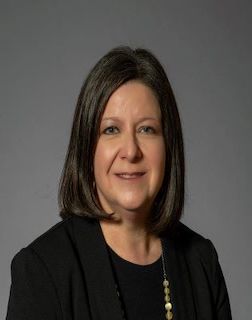 Written by Anessa Westbrook, volunteer with Iron Rose Sister Ministries in Arkansas
Written by Anessa Westbrook, volunteer with Iron Rose Sister Ministries in ArkansasIn Matthew 22:39, Jesus tells Christians to love their neighbors as themselves. Clearly, loving others is part of witnessing to them and this love can be seen through service. In Acts 9:36-43, we see the story of Dorcas. When she died, two men sought out Peter and asked him to come help. When Peter arrived, he was surrounded by mourning widows for whom she had made clothing. The need was clear; Peter was moved by this and raised her from the dead, allowing her to continue her service to the community.
This particular story is a clear example of the difference that someone can make in the lives of others. Were these women simply concerned about no longer receiving the clothing that Dorcas provided? Surely not! The detail of the two men coming to find Peter and asking him to help is an indication of the loss this community felt, and also that others perhaps felt at a loss to provide the help that was needed. The true gift that these widows received from Dorcas was something greater than merely a piece of clothing. Instead, Dorcas had provided both love and hope.
C.S. Lewis in Mere Christianity writes,
Most people, if they had really learned to look into their own hearts, would know that they do want, and want acutely, something that cannot be had in this world. There are all sorts of things in this world that offer to give it to you, but they never quite keep their promise. (p. 135)
In our modern society, we can help people see an alternate way of life and a Christian way of living that is in stark contrast to the world around us. Just as Israel and early Christians lived in a world needing hope, we, too, are surrounded by people who are desperate to fill the longing for hope that they feel in their souls.
In Ephesians 2:12, Paul reminds the Ephesian church that before they were Christians, when they were separate from Christ, they were without hope. He writes, “Remember that at that time you were separate from Christ, excluded from citizenship in Israel and foreigners to the covenants of the promise, without hope and without God in the world” (NIV). Sharing this hope is certainly the driving force behind our witness and ministry.
The Book of Hebrews was written to a group of Christians who were being persecuted; yet in Hebrews 13 they are not called to focus on their own troubles but to serve. Hebrews 13:1-3 says,
Keep on loving one another as brothers and sisters. Do not forget to show hospitality to strangers, for by so doing some people have shown hospitality to angels without knowing it. Continue to remember those in prison as if you were together with them in prison, and those who are mistreated as if you yourselves were suffering.
Just because the recipients of the letter to the Hebrews were suffering, they did not have permission to get out of service or witnessing to others. Instead, they were to focus on how they lived, their purity, doctrine, and on finding ways to help others. What a challenge for us today! Often, we are overly focused on our own struggles as Christians, but if we refocus our attention on how we live, our purity, understanding our faith, and service, this puts things into greater perspective.
In Matthew 6:25-34, Jesus teaches His followers not to worry about earthly concerns and problems. When Christians live this out, the lack of worry shows a confidence and hope that surpasses what many people will encounter in the world. This is attractive to a world that feels as if they have no hope. Showing that there is hope, and living day-to-day in a way that is different, is also an important part of our witness.
As Christians, we have both the responsibility and opportunity to show the world a different way of living, loving, and serving. Our hope in Christ is both the object and focus of our witness. Hopefully through our reflection on biblical hope, we can share with others the basis and potential of our hope.
- What are some specific ways that hope could affect and encourage our outreach to others?
- Hebrews 13:16 says not to neglect doing good and sharing, but what are the specific implications for the church if the majority of members were to neglect it?
- What are some specific areas in which you would like to see yourself more involved in helping the church, and what obstacles do you face in being able to do that?
-
Think Small
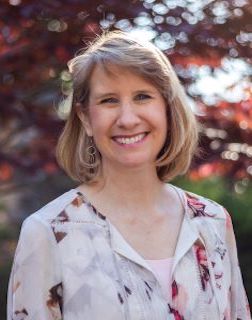 Written by Wendy Neill, Advancement Coordinator for Iron Rose Sister Ministries in Arkansas
Written by Wendy Neill, Advancement Coordinator for Iron Rose Sister Ministries in ArkansasI grew up in a thriving church of around 3,000 people. When I tell people that, they often say, “I don’t like big churches. It’s too hard to get to know people.” Yes, it is impossible to get to know that many people. Those who only come to a large assembly on Sunday morning don’t grow very much in their faith. That’s why it is important to “think small.”
GoodFaithMedia estimates there are about 2.6 billion followers of Christ in the world today. How did Jesus start this worldwide movement? One by one, and through small groups. While Matthew was sitting in his tax office, “Jesus said to him, ‘Follow Me.’ So he[Matthew] arose and followed Him” (Matt. 9:9 NKJV). He called out to Simon Peter and Andrew as they were going about their daily work of fishing. “Follow Me, and I will make you become fishers of men" (Mark 1:17).
Gradually, Jesus surrounded Himself with a group of disciples. We don’t know how many. After spending some time with them, He talked with His Father and made a focused decision.
One of those days Jesus went out to a mountainside to pray, and spent the night praying to God. When morning came, he called his disciples to him and chose twelve of them, whom he also designated apostles. (Luke 6:12-13 NIV)
With this small group of twelve, Jesus changed the world. He had other disciples who followed Him, including women (Mark 15:41), and He preached to and healed large crowds of people. But He gave special teaching, care, and insight to these twelve. He explained parables to them, He sent them out with miraculous powers, and He went through storms with them. He focused on the twelve because He knew they would each disciple others, even after He left this earth. And it worked. His teachings spread like wildfire.
Within that group of twelve, He had three that were His inner circle: Peter, James, and John. He kept them closest in His moments of need. When He knew His death was drawing near, He took those three up to a high mountain. They had the privilege of witnessing the appearance of Elijah and Moses, encouraging Jesus to remain strong and finish His mission (Matt. 17). On that dreadful night before He was betrayed into the hands of the Pharisees, He had a special “Last Supper” with all twelve. He prayed for them, gave them some final instructions in John 13-17, and took them to Gethsemane so He could pray for strength. But in that final stretch, He only took the three with Him.
We can follow this same pattern in our relationships. My childhood faith was nourished in that big church through small group relationships. Adults taught my fourth-grade class. A young couple taught us as seventh-grade girls. My youth group numbered 200, but I had a group of about twelve close friends. We served orphans in Jamaica, built a Sunday school classroom for a poor church in south Texas, and encouraged each other in our faith. As an adult, I have had small group studies with college students or other adults in my home. And I have two or three women that I can call any time to pray for me or to walk with me through a hard time.
There are so many ways that we can seek to be like Christ. One of them is to think small. Small groups allow you to share your heart and to get beyond the pleasantries.
Are you part of a formal or informal small group of Christians? Do you have three women in your life who help you grow? If not, I encourage you to seek out and cultivate those relationships with other disciples. They are your “Iron Rose Sisters”!
-
To Love as Christ Did
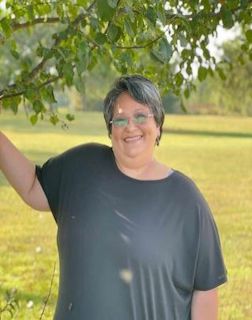 Written by Claudia Pérez, volunteer with Iron Rose Sister Ministries in Alabama
Written by Claudia Pérez, volunteer with Iron Rose Sister Ministries in AlabamaAs Christian women, our daily goal is to imitate Christ and walk as He walked, especially in the way that He loved, because this will reflect that we know God. So said the Master, “By this everyone will know that you are my disciples, if you love one another” (John 13:35 NIV). But how can we love as Christ loved?
Without a doubt, the meaning of loving as Christ loved is found in the book of John, “For God so loved the world that he gave his one and only Son, that whoever believes in him shall not perish but have eternal life” (John 3:16). The expression "so loved" expresses the magnitude of God's love, a love so great that even though we were sinners, our God sacrificed His only Son to die for us.
First of all, to love as Christ loved, we must understand that sacrifice is required. The Lord gave Himself as a sacrifice for us; His body was martyred on the cross of Calvary because He loved us. If you and I want to love as Christ loved, how do we imitate that sacrifice? The apostle Paul tells us: “Therefore, I urge you, brothers and sisters, in view of God’s mercy, to offer your bodies as a living sacrifice, holy and pleasing to God—this is your true and proper worship” (Rom. 12:1). Thus, this sacrifice consists of giving up ourselves and sacrificing our lives completely in the service of our God.
The Master also said, “Greater love has no one than this: to lay down one’s life for one’s friends” (John 15:13), and it is with that love that Christ loved us and gave Himself up. “This is how we know what love is: Jesus Christ laid down his life for us. And we ought to lay down our lives for our brothers and sisters” (1 John 3:16).
John 3:16 and 1 John 3:16 get my attention because of their similarity; in them I find the perfection of God in every way, showing us His great love and teaching us how to practice this great love towards our neighbors.
While it is true that today, while almost no one would die for any human being, we must understand that loving our neighbors requires sacrificing our desires and priorities for their good. The Master loved us not only by sacrificing His life and giving up Himself, but by enduring humiliation, and dying in the most humiliating way.
Who, being in very nature God, did not consider equality with God something to be used to his own advantage; rather, he made himself nothing by taking the very nature of a servant, being made in human likeness. And being found in appearance as a man, he humbled himself by becoming obedient to death— even death on a cross! (Phil. 2:6-8)
It is sad to see how we forget to imitate this way of loving when we allow there to be lawsuits between us, when we wrong our sisters, when we defraud our sisters, and let pride, revenge and injustice dwell in us. Many times, we think that forgiving or asking for forgiveness is humiliating. That thought is too often within us, and we forget about obedience to our God, and that love that was shown on the cross of Calvary. But this is not just a current problem; let's remember what happened in the Corinthian church. There were lawsuits among themselves, and they deceived each other and the apostle Paul exhorted them in this way, “Why not rather be wronged? Why not rather be cheated?”(1 Cor. 6:7b)
Let us not allow Satan to gain advantage in our lives and tempt us to do wrong, knowing that God will exalt us on that day, and we will be obeying the greatest commandment,
Jesus replied: “Love the Lord your God with all your heart and with all your soul and with all your mind” This is the first and greatest commandment. And the second is like it: “Love your neighbor as yourself.” (Matt. 22:37-39)
To love as Christ loved is sacrifice, surrender, obedience, humiliation, suffering, and dispossession. It is giving our lives to the service of God and our sisters. My sisters, let us love as the Master has given us an example. If you have not yet given your life to the Lord, you have not allowed that love to take effect and be reflected in your life because you have not known God, and God is love.
To love as Christ loved is to give our lives unreservedly to God, but it is also to love our fellow man as ourselves. Are you willing to imitate the Master's love? Are you willing to love as Christ loved?
-
Toxic Relationships
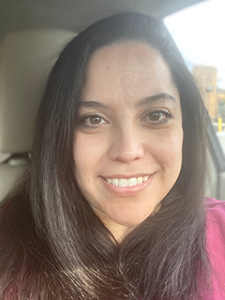 Written by Elina Vath, volunteer with Iron Rose Sister Ministries in Ohio
Written by Elina Vath, volunteer with Iron Rose Sister Ministries in OhioI have tried to sit down and write multiple times. I’ve questioned what on earth possessed me to choose the topic of “toxic relationships: personal application” even more. I wouldn’t call what I’m feeling “writer’s block” because it’s more of a “writer’s paralysis.” Describing what God has taught me through my experience with toxic relationships means digging in holes that are filled in and covered with grass. It means going to places where I never wanted to return.
But Jesus. My mind goes to Him.
Jesus doesn’t get to forget His relationship with those knowledgeable men in fancy robes who were supposed to back Him up and demanded He be murdered instead. He doesn’t get to forget that one of His closest friends sold Him out for a small satchel of coins. Rather, Jesus ensured that these toxic relationships are documented multiple times, by multiple people—and preserved over the centuries for millions to know.
The pool of evidence that Jesus was on the receiving end of toxicity from those around Him is extensive.
No one knows narcissism, manipulation, deceit, and treachery like Jesus. Those of us who have front-row experience with any or all of these forms of dysfunction can claim that the One we follow knows exactly how it feels. We serve the God-man who sees our suffering, the betrayal, and the hurt, and empathizes. If nothing else I write about gives comfort, let this be it: When we approach Him in prayer, talk to Him, and pour our hearts out to Him, He feels our pain and then promises to give us peace that is beyond understanding.
But what about me?
We live in a fallen world where we are constantly navigating toxicity in our relationships. And none of us are guiltless of exhibiting toxic behaviors. We have all said or done things of a toxic nature. Maybe you were the instigator, maybe you were reacting to something that hurt you. Whatever the situation, identifying your own toxic traits is a huge part of the healing process. I can say for myself that growing and deciding, “I’m not who I used to be,” has been empowering. So, embrace the power of God to transform you, and relish in being someone different now—someone who resembles Jesus a little more.
But they haven’t changed.
There are times when toxic relationships cannot be cut out of your life entirely. When this happens, the healing process will happen again. And again. And again. Because the hurting, manipulation, etc., will not stop. But remember, you have changed. You see through the toxicity. You have changed the patterns of your behavior. You don’t process the daggers the same way you used to, and they don’t have the same effect on you anymore. Don’t let the repeated negative experiences wear you down. Instead, see them as opportunities to get stronger, to build your character. You will see that, in time, the healing will come more quickly.
But I’m weak sometimes.
I hear you, sister. We’ll both take steps back. We’ll both have moments when we revert back to the way we used to be. But hang on. You’ll get better at catching yourself. Laying your weakness at God’s feet means He’ll give you what you need in exchange. Don’t get discouraged in moments of weakness. God doesn’t run out of mercy and grace, and He loves it when you come to Him for help.
My heart goes out to you. I’m sorry you’ve been hurt. Cheering you on as you heal!
-
Truth and Lies About Self-Discipline
 Written by Melanie Curtis, volunteer with Iron Rose Sister Ministries in Arkansas
Written by Melanie Curtis, volunteer with Iron Rose Sister Ministries in ArkansasWhat is self-discipline, and why is it so important? The Oxford Dictionary defines self-discipline as “the ability to control one's feelings and overcome one's weaknesses; the ability to pursue what one thinks is right despite temptations to abandon it.” For as long as I can remember, I have always had what I thought was a “motivation problem.” I have struggled as a chronic procrastinator and avoider of hard problems. A friend shared a concept with me that revealed that the real problem is a lack of self-discipline, not a lack of motivation.
We will not always feel motivated to do the right thing or to complete all of our tasks every minute of every day, but if we turn those tasks into habits, one by one, we are exercising self-discipline, which makes it easier to do what needs to be done even when our motivation is low.
What are some temptations you face? Do they make you want to do what you shouldn’t, or do they make you want to not do what you should (Romans 7:15-25)? Self-esteem issues, selfishness, laziness, addictions, and more can keep you from fulfilling your goals and God’s goals for your life, but those struggles can be combatted with self-discipline.
What does Jesus say about self-discipline?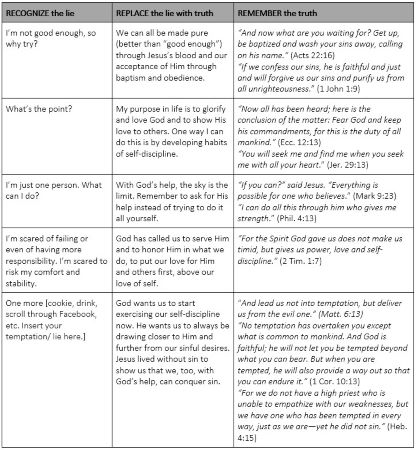
Let us ask God to help us turn good tasks into habits-- into a strong self-discipline muscle that we use every day to honor him at home, at work, and most importantly, in the Kingdom of God.
-
Unequally Yoked
 Written by Francia Oviedo, Creative Assistant for Iron Rose Sister Ministries in Honduras
Written by Francia Oviedo, Creative Assistant for Iron Rose Sister Ministries in HondurasI remember sitting in a park with all my friends. It was common to sit there to chat, laugh and although it seemed innocent, sometimes laugh at others. We used to have conversations that were not very useful or profitable. But one day something different happened; I realized that, unlike my friends, I was already a Christian, I had given my life to God, and I was unequally yoked.
But what is a yoke? Imagine a piece of wood with an arch carved out on each end. The head of an animal--generally an ox—is fitted in each arch, and when they are prodded by the tiller of the plow, they will pull the yoke to plow the field and create furrows in which seed will be planted. These furrows must be consistent in depth and spacing because if they are not, the seed will not be able to grow properly. This is why it is important that the two animals that are yoked together are of equal size and strength because if not, the crop will not grow properly and, above all, the animals could hurt each other if one of them pulls the yoke with more force than the other. In the Old Testament we find this verse, “You shall not plow with an ox and a donkey together” (Deut. 22:10 NASB).

So, then what do we call an unequally yoked relationship? A marriage relationship where one of the parties is not a Christian is commonly called an unequally yoked union, but I believe it goes much further than that. I think it is an issue that we must constantly pay attention to. Being unequally yoked can also apply when our lives are being influenced by worldly beliefs, cultures, ideas, ideologies, etc. where the will and holiness of God does not reign. Many times, we let these things guide our way of thinking and behaving and we end up unequally yoked, forgetting God's will for us.
Going back to my story, after giving my life to God and deciding to change my way of living and my way of speaking and expressing myself, I continued walking around with my friends who continued doing the same things that I no longer wanted to do. That day in the park while everyone was having a conversation and laughing at a boy who was passing by, saying things that had no purpose for me, I understood that that was no longer where I needed to be, and I decided to leave this environment and these companions. As 1 Corinthians 15:33 says, “But don’t be so naïve—there’s another saying you know well—Bad company corrupts good habits" (The Voice). I really liked enjoying time with my friends, but it was no longer a place for me.
With this, I am not saying that we have to abandon friends, a partner, a job, or a project, but it is about understanding and respecting our purpose of keeping ourselves in the will of God. I believe that when we demonstrate this firmness, which of course we must do with a lot of love and respect for others who do not believe in God, we can show the light of Jesus and we can become references for them when they need God.
As for my friends, I can say that, although I distanced myself a little from them and that unhealthy environment, I continued to be in regular contact with them, since I also know that my purpose is to share the message of God, trying to be a light for them, while always guarding my heart.
And well, I already told you what I had to give up, and I assure you that there are things that I must be constantly evaluating in my life: what conversations do I have, what music do I listen to, what videos or series do I watch? I must constantly check my heart and analyze what I am unequally yoking myself to.
And you, what relationships, conversations, movies, books, ___________ (fill in the blank with your challenge) are you unequally yoking yourself to? I encourage you to put those things in God’s hands in prayer. May He always help you guard your heart and not be unequally yoked.
-
Unfaithful Relationships
Co-authored by Claudia Pérez and Edilaine Staton, volunteers with Iron Rose Sister Ministries in Alabama
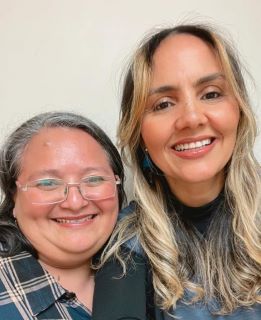
The topic of infidelity in the world today seems to be "fashionable." Every day more public figures exhibit their unfaithful relationships without fear or modesty. It seems that talking about infidelity today is becoming something very "common and normal." And, sadly, infidelities can even be seen in the lives of great religious leaders and within the Church itself. This occurs when behavior outside of what is written in the Scriptures is announced or preached, being faithful to an earthly standard, rather than to the will of God.
Dictionary.com defines infidelity as unfaithfulness; disloyalty. Let us remember what the Bible tells us about infidelity; it reminds us that we have a jealous God who wants us to present ourselves as a pure virgin bride to Christ. “I am jealous for you with a godly jealousy. I promised you to one husband, to Christ, so that I might present you as a pure virgin to him”(2 Cor. 11:2 NIV).
Let's remember the unfaithful relationship between God and the people of Israel. Israel received a warning to not bow down to any other god because Jehovah is Jealous.“Do not worship any other god, for the Lord, whose name is Jealous, is a jealous God” (Ex. 34:14).
Today, the question is: What are the other gods we bow to: the god of money, ego, work, confusion, lust, disbelief, etc.?
God examines hearts. Another example of an unfaithful relationship was the nation of Judah. God’s desire was for Judah to turn to Him with all her heart, but Judah did it halfheartedly. “’In spite of all this, her unfaithful sister Judah did not return to me with all her heart, but only in pretense,’ declares the Lord”(Jer. 3:10).
In the next few verses, we see that God saw Israel as righteous compared to Judah, and gave Israel an opportunity to repent.
The Lord said to me, “Faithless Israel is more righteous than unfaithful Judah. Go, proclaim this message toward the north: Return, faithless Israel,” declares the Lord, “I will frown on you no longer, for I am faithful,” declares the Lord, “I will not be angry forever.”(Jer. 3:11-12)
God has always wanted us to turn to Him with sincere repentance. How many times have we had an unfaithful relationship with our God? How many times have we failed God? How have you shown your faithfulness to God? Like Israel or like Judah? God knows our hearts and will find falsehood. It is my prayer and wish that our repentance be sincere and without pretense like Israel. God forgives us and does not pour out His wrath. He will send people to us who will help us know His heart and who will feed us with knowledge and wisdom. God has given us His Church to welcome and instruct us in His Word so we may remain faithful to Him. “All Scripture is God-breathed and is useful for teaching, rebuking, correcting and training in righteousness” (2 Tim. 3:16).
God tests people’s fidelity. Let's remember how God tested Abraham's faithfulness in Genesis 12:1-2. God was at that moment testing Abraham's trust and faithfulness. God continues to test people as He did with Abraham, however we are not always totally willing to submit to God's will. Today, fidelity to God is increasingly missing from mankind. How many people are suffering due to a lack of faith in God? They do not believe that God even exists and that ultimately leads to their ruin. Many even reach the limit of their strength and take their own lives. The Bible tells us: “Good judgment wins favor, but the way of the unfaithful leads to their destruction”(Prov. 13:15). Infidelity leads us to transgress God's law and walk a hard and rough path.
When we decide to be wholeheartedly faithful to God, we will put aside our egos and walk together on the path that God set for us. As long as we continue to live behind the wall of our desires, we will in no way be able to understand the fidelity that God desires and we will experience an unfaithful relationship with Him. Sinful actions in our lives are evidence of an unfaithful relationship between God and us.
Malachi 3:6 reminds us: “I the Lord do not change. So you, the descendants of Jacob, are not destroyed.” Thus, our infidelity will not alter God's faithfulness, even when we fail in our efforts to be completely faithful to Him. Are you ready to leave any god that is resulting in an unfaithful relationship with the Father? Are you ready to start a faithful relationship with our God and experience His great love and protection?
-
Unlikely Friendships
Written by Deanna Brooks, volunteer with Iron Rose Sister Ministries in Arkansas

Paul and Barnabas teach us that different personalities are able to work together when God is the focus.
Acts 4:36-37 (ESV) introduces us to Barnabas. “Thus Joseph, who was also called by the apostles Barnabas (which means son of encouragement), a Levite, a native of Cyprus, sold a field that belonged to him and brought the money and laid it at the apostles' feet.”
Paul comes on the scene in Acts 7:58-8:1, called by his Jewish name Saul, holding the garments of those stoning Stephen and approving the execution, indicating that he had some authority among Jewish leaders. He was born in Tarsus, an ancient city off the coast of the northern Mediterranean Sea. Philippians 3:5-6 says he was of the tribe of Benjamin, a Hebrew of Hebrews, a Pharisee. He would have considered Jesus a false prophet because of His claim to be the Son of God. He would have believed the new disciples were leaving the true God of Judaism, much like his ancestors did in following Canaanite gods.
Saul grew up in Jerusalem and studied at the school of Gamaliel (Acts 22:3).
Saul went to Damascus with a letter of authority from the high priest of the synagogue, intending to persecute the church there. On the way, he encountered Jesus and was baptized by Ananias. He began preaching in Damascus soon after he was baptized, amazing the disciples who knew he had originally come with the intent to persecute the Christians there (Acts 9:21).
When Saul returned to Jerusalem, the disciples were afraid of him; they remembered him as a persecutor of the church. But Barnabas stood by his side and introduced him to the apostles (Acts 9:26-27). They didn’t trust Saul, but they did trust Barnabas.
The disciples had scattered after the stoning of Stephen. In Acts 11 word reaches Jerusalem that there were believers in Antioch, and Barnabas was sent to investigate. Acts 11:23 tells us, “When he came and saw the grace of God, he was glad, and he exhorted them all to remain faithful to the Lord.”
Barnabas then went to Tarsus to look for Saul, who had been sent there by the disciples in Jerusalem for his safety (Acts 9:30; 11:25-26), and brought him to Antioch where they worked together for a year.
Acts 13:2 reads, “…the Holy Spirit said, ‘Set apart for me Barnabas and Saul for the work to which I have called them.’”
Another missionary disciple, John Mark, went with Saul and Barnabas on this first missionary journey, assisting them as they went from town to town. At Paphos, Mark leaves and returns home.
Acts 13:9 refers to “Saul, who was also called Paul,” and from this point on we read of Paul and Barnabas as they continue without Mark. This journey was filled with receptive hearts as well as persecution from the Jews, who sometimes followed from town to town.
When Paul and Barnabas finished this first journey, they sailed back to Antioch, gathered the church together, and declared all that God had done through them and how He had opened the door of faith for the Gentiles.
Even after all the persecution, Paul and Barnabas began planning a second missionary journey. Barnabas wanted to take Mark again, giving him another opportunity, but Paul opposed taking him and they argued. Acts 15:39 calls it a “sharp disagreement.”
As a result of this disagreement, they went different ways; Barnabas took Mark, Paul took Silas, and the gospel was spread in two directions. Paul completed three missionary journeys. We do not have detail about the further work of Barnabas.
Paul appears to be goal-oriented… he had a purpose, a plan… and he did not want it disrupted. He probably made decisions quickly, then stood by those decisions.
Barnabas appears to be relationship-oriented, looking for those who needed encouragement. He probably took his time making decisions, evaluating what the need was before acting.
Despite the disagreement, it appears Paul kept up with the work of Barnabas and Mark. In 2 Timothy 4:11 Paul wrote, “Luke alone is with me. Get Mark and bring him with you, for he is very useful to me for ministry.”
Paul values Mark, and we assume the disagreement between Paul and Barnabas was not a permanent rift. In Christ-filled relationships, good friends can have sharp disagreements and still maintain respect and friendship.
The confidence Barnabas had in Mark may well have been what encouraged him to write his gospel.
Just as God used Paul and Barnabas despite their differences, He can use our different personalities for His purposes. Paul had intense zeal; Barnabas had a heart for people. We can learn from both of them.
-
Valuing and Celebrating Singleness
Written by Michelle J. Goff, Founder and Director of Iron Rose Sister Ministries

Singleness is a loaded word. It evokes a reaction and carries connotations that stir up feelings we may not be comfortable discussing. For some, singleness is independence and liberty. For others, loneliness, and isolation.
In 2019, I conducted surveys and interviews to ascertain the thoughts of single and single-again women on the topic of singleness. As one of the most neglected populations in our churches, yet statistically over half the population in the U.S., I knew this was a necessary conversation.
Late 2021, One Single Reason: Conversations with Single Women was released. It ensures that we seat God at the head of the table and most attentively listen to His voice. My voice is represented through various stories and illustrations. Other women’s voices are shared through their own experiences and perspectives. Finally, we invite your voice into the conversation. Pull up a chair!
We are invited to share in the opportunity to learn from one another and from Scripture. The number of single and single-again characters in the Bible is astounding. Some of the most famous people whose stories are narrated in the Scriptures were single, starting with Jesus.Then we have Paul, Mary, and Martha amongst His most devoted disciples. Miriam was single, Hagar was a single mom, and Anna was a widow who dedicated years serving in the temple, awaiting the Messiah.
One of the ways we can celebrate singleness is to highlight that facet of these integral individuals in God’s Bible story. Singleness is not the sum of who we are, but neither it is a characteristic or dynamic that can be ignored.
Integrating our unique qualities, God amazingly weaves all our stories into the tapestry of His design and wills us to walk with Him through all stages and ages of our lives. The Body cannot function without all its members (1 Cor. 12); therefore, our single members are also vital to the Kingdom.
One Sunday morning, shortly after the book’s release, a shepherd at my current congregation asked how long it took me to write One Single Reason. Before I could formulate my answer, he interrupted me. “I bet this one took a lifetime.” Amazed at how deeply that elder saw me and my work, I slowly nodded, “Yes, it did.”
Throughout my life, I have heard hundreds, maybe thousands of cries from single women that their stories be heard, and their lives be valued. We are more than our marital status, but singleness brings distinct challenges that can only be understood by someone who has lived through it.
The median age for women to get married has increased to 28 from an average of 20.3 in the 1950s. Most young singles do not have someone in their lives who has lived through the same experiences she has, beginning a career instead of starting a family. One course of action is not right while the other is wrong, they are simply different.
And our differences can feel threatening. We fear what we don’t know or understand. When we openly share our hearts, our struggles, and our experiences, we demystify the unfamiliar. Yes, there is a vulnerability in that level of openness, but we were designed to be in deep and meaningful relationships. Our sincerity will facilitate genuine conversation and unity.
We all long for relationship and purpose (Matt. 22:36-39; Matt. 28:18-20; John 15). As we strive toward these goals, may we listen, learn, and love those who are different. The invitation of God’s love and service in His Kingdom is not exclusive. We can all be clothed with Christ and find our most significant identity in Him (Gal. 3:26-27).
Today, I invite you to ask a single or single-again woman how you can pray for her. It is a first step toward listening, learning, and loving.
-
What I Have Learned as a Student of Relationships
Written by Lisanka Martínez, volunteer with Iron Rose Sister Ministries in Venezuela

“As iron sharpens iron, so one person sharpens a friend.” (Prov. 27:17 CEB)
We were created to be in relationships and to learn from those relationships.
It is undeniable that we are influenced by, and can influence the other people on our relational map. In this world, relationships are often complicated. Both in the family environment, as well as at work, in studies, and in the community, there will be differences, rivalries, and communication failures, among other things, that can make relationships complicated.
In the church body, we also learn about relationships, of course, with a different focus than the rest of the world. Once in Christ, even the most obstinate of human beings learns that we must love everyone, relate to all kinds of personalities, accept them, and treat them with love, as well as correct and be corrected with love. It is more difficult for some than for others. Depending on the temperament of each person, the change may be greater or less.
In my case, I grew up in a large family where most of them talked a lot, and with a loud and strong tone of voice. I, on the other hand, was quiet and limited myself to listening, expressing my opinion only if they asked me to. This distinguished me from others during my childhood and adolescence. I had few friends with whom I could express myself more openly; this caused some misunderstandings and embarrassing situations that only led me to become more withdrawn. Later, while I was studying Social Work, I began to express myself more in my relationships, both at school and with friends, but in my family relationships, I made little progress.
I learned a lot more about the exchange in relationships during my college years and in my working life. However, it wasn’t until I became part of the church that I learned so much more. I continue to learn about interpersonal relationships and the fact that God did not create us to be alone. His word says, “Two are better than one” (Eccl. 4:9 NIV).
When we are guided by the word of God and learn both from the examples of the relationships that had bad outcomes and from the ones that are good examples for believers, we can choose which path we will follow. When we understand the fruit of the Spirit and all that it generates in us, we will want to make an effort to develop it in our lives.
Likewise, when we see a brother or sister who, despite the adversities they are suffering, is ready to advise or help us, or when we understand that the sister who criticizes or judges also has faults and is as human as anyone, or when we see that sister who persists in her pride and maintains her opinions, believing herself to be wiser and less sinful than others (we may also see ourselves reflected in her conduct), we find that everything is part of God’s divine plan. Because we are blessed with His grace, every day we must try to keep the flame of brotherhood and friendship alive, despite our own mistakes or the mistakes of others. We learn that God's love is incomparable, and is what we must imitate, just as brother Paul advises when he says,
Do nothing out of selfish ambition or vain conceit. Rather, in humility value others above yourselves, not looking to your own interests but each of you to the interests of the others. In your relationships with one another, have the same mindset as Christ Jesus.(Phil. 2:3-5)
Let us try to achieve this in our relationships, not only with our sisters in faith, but also with each person who crosses our path and with whom we can share the glorious love of our Heavenly Father through the gospel of salvation along with a good deed or kind gesture.
Would you like to follow the example of our Lord Jesus Christ in His relationships?
What can we learn from each relationship with our brothers and sisters in Christ?
Are we applying that learning and that same attitude in our secular lives?
How can we improve our intra-family relationships?
May God bless us and help us reflect His peace and love every moment in all our relationships.
#IronRoseSister #teachthroughrelationships #learnthroughrelationships #learnfromothers #blog #guestwriter
-
What I Thought I Understood About God
Written by Corina Diaz, volunteer with Iron Rose Sister in Argentina

From a very young age, my personality was leading towards being an Enneagram 9. If you know about the Enneagram personalities, you will know what I mean. If not, this link will take you to some information that may help you understand it in a very illustrative way: The Nine Enneagram Types - Enneagram Explained.
The ability to mold myself into this Enneagram personality type is a result of being raised by a father who was a very severe man. So, I adopted a rather stressful defense mechanism: trying to make everything perfect at home to prevent my father from getting angry.
As a consequence of maintaining this practice for years, I managed to make connecting with God, from the perspective of seeing Him as a loving Father, one of my greatest challenges. This is especially hard when we have grown up with the image of a God who in the old covenant is seen as a strict and demanding Father, demanding the attention of His people.
However, when we look at the story of God and His people from a more global perspective, we observe a God full of grace and tenderness. “For the Lord your God is a merciful God; he will not abandon or destroy you or forget the covenant with your ancestors, which he confirmed to them by oath”(Deut. 4:31 NIV).
There are examples of grace throughout the Bible. Although the Old Testament focuses its attention on justice, mercy also plays an essential role in our understanding of the character of God. “In love a throne will be established; in faithfulness a man will sit on it— one from the house of David—one who in judging seeks justice and speeds the cause of righteousness”(Is. 16:5).
With God, there is no judgment without mercy. “Yet the Lord longs to be gracious to you; therefore he will rise up to show you compassion. For the Lord is a God of justice. Blessed are all who wait for him!”(Is. 30:18)
This new understanding of the old covenant has also changed the way I perceive my relationship with my earthly father and has even allowed me to discover traits of my own personality that I was unaware of. Now I can feel more authentic in my relationship with myself and with God, I feel confident in a love that doesn't desperately need perfection, it just needs me to be willing to live in His home forever as we are promised in Psalm 23:6. “Surely your goodness and love will follow me all the days of my life, and I will dwell in the house of the Lord forever.”
In this way, Christ can do his work.“My grace is sufficient for you, for my power is made perfect in weakness”(2 Cor. 12:9a).
-
What It Means to Be a Disciple of Christ
Written by Ann Thiede, volunteer with Iron Rose Sister Ministries in Arkansas

“Insecure” describes me from my childhood through my teenage years, wanting to fit in, becoming a people-pleaser which led to conflicts within and ungodly choices. I craved relationships—people with whom I could be close and share my heart. Unfortunately, many of my contemporaries during my high school and college days followed the crowd. But, praise God, a few helped me walk toward Christ.
Matthew, in his gospel, recorded these last words of Jesus:
All authority in heaven and on earth has been given to Me. Therefore, go and make disciples of all nations, baptizing them in the name of the Father and of the Son and of the Holy Spirit, and teaching them to obey everything I have commanded you. And surely, I am with you always, to the very end of the age.
I’m forever grateful for God’s beautiful orchestration through four peers, drawing me to Him and teaching me what it looks like to follow Him. These are some discipleship steps I’ve learned.
The first step involves getting to know Jesus as you read the Gospels with a hungry, teachable heart, and the willingness to let go of preconceived ideas. In searching for what you believe, you will find Who you believe. I encourage you to read through John’s gospel first, taking note of all of the titles Jesus gives Himself. For example, in John 6:35 He says, “I am the bread of life,” and then “…sothe one who feeds on Me will live because of Me” (6:57b). Ask yourself: What would it look like to feed on Christ?
The writer of Hebrews says, “For the word of God is alive and active. Sharper than any double-edged sword, it penetrates even to dividing soul and spirit, joints and marrow; it judges the thoughts and attitudes of the heart” (Heb.
Remember my issue of people-pleasing, wanting approval? Jesus wants us to please Him above all others. His desire is to draw us toward His likeness, giving us the courage to talk as He talked, live and love as He lived and loved, and to reach out and share the Good News even as He did.“For the Son of Man came to seek and to save the lost” (Luke 19:10). It is the heart of Christ that we who are disciples make disciples by sharing His Good News, studying the Word with those who don’t know Him, planting seeds of faith or watering what others have planted, and watching God bring the increase of souls into the Kingdom.
Discipleship means adhering to God’s Word first and foremost. Spirit-inspired words throughout the Bible embody truth. Luke records these insightful thoughts: “Now the Berean Jews were of more noble character than those in Thessalonica, for they received the message with great eagerness and examined the Scriptures every day to see if what Paul said was true” (Acts
Following Christ as His disciple also means walking together in this life with other disciples; encouraging one another, praying with one another, and sharing joy and grief together. Surrendering to Him as Lord and Savior means becoming a part of His Body, the church. Jesus intends for disciples to function together in harmony. I encourage you to read 1 Corinthians 12: 12-31 and Romans 12:4-8, both beautiful passages about the church and what your part may be, according to the gifts God has given you. Many disciples over the years have enriched my life, encouraging me to be more like Jesus. These relationships go deep as we share life including our spiritual struggles and victories. The Holy Spirit has taught me the value of Paul’s admonition when he says, “Follow my example, as I follow the example of Christ” (1 Cor. 11:1). If you desire qualities you see in another person that are Christlike, start asking God!
As you’ve read, in what area of being a disciple of Jesus do you desire growth?
- Getting to know Jesus better through the Gospels
- Developing a consistent prayer life
- Allowing Him to make changes in your life
- Making disciples by sharing Christ with others
- Letting the Word be your guide for truth above all
- Deepening relationships with other disciples
Go to Jesus and share with a fellow disciple. And remember, Jesus has promised to be with you, always.
-
When the Relationship Covenant is Broken
Written by Michelle J. Goff, Founder and Director of Iron Rose Sister Ministries
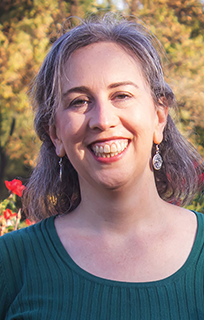
My youngest sister used to decorate beautiful ceramic mugs for me, but she had to stop this practice because I broke every single one. The last one, she rescued before I could break it. I never broke them intentionally. I used them all the time until my clumsiness or a very hard floor caused them to break.
Thankfully, my relationship with my sister was not dependent on the lifespan of those ceramic mugs. After we have gone through a time of brokenness, our commitment to the relationship, the covenant we have made, has actually been strengthened through the brokenness. (See thevideo on Redefined Identity that we narrated together and that illustrates brokenness.)
Still, we cry when things break. Broken relationships are more painful and evoke many more tears than broken dishes.
When my ex called off the wedding and permanently ended our relationship two and a half months before we planned to walk down the aisle, I was devastated. Not only was the relationship broken, I was broken—shattered in a million pieces and disoriented beyond a simple state of confusion. Brokenness was my constant companion for more than three years.
When a relationship covenant is broken, there are a few things that inevitably happen.
- We lose trust in people.
- We lose trust in ourselves.
- We doubt our trust in God.
Single-again women, especially the divorced or separated, I’m sorry for what you are going through and please know that no matter the stage of your healing process, you are not alone! Also, please hear that you are not going crazy! Broken covenants are messy! And they are not what God has designed.
If your spouse broke covenant with you, I grieve with you. Our God can redeem anything and bring about good, even in the midst of the bad (Rom. 8:28).
If you are the one who broke covenant, please know that God’s redemption and forgiveness are possible (Ps. 103:10-13; Eph. 1:7-8).
If the breaking of covenant was necessary for your safety or that of your children, I applaud your bravery and pray that there are others nearby who are able to walk with you and support you in tangible ways (Ps. 103:6; Is. 61:1-3, 7).
Relationships are at the core of who we are and what define us. We learn and teach through relationships—and not all the lessons are positive. Sometimes we are learning what not to do or attempting to teach something we are unfamiliar with because of our past.
Sisters, one thing that I learned is that no matter how much my trust wavers, God’s love for me does not.
Three key lessons I learned through my season of the broken covenant of relationship:
- God is eternally faithful and unconditional in His covenant (Lam. 3:22-26; Heb. 13:20-21).
- God allows people to have free will and I must accept that (Gen. 2:16-17; Rom. 7:15-24).
- Redemption and healing are possible, but they do take time (1 Pet. 2:24; James 5:16).
As I mentioned, a broken promise in relationship is deeply painful and causes us to doubt whether we can trust the other person in the future. My deeper doubts were whether or not I could trust myself to know whether I was a good judge of character, since I chose to be with someone who later broke his promises.
On many levels, I still respected and loved my ex—to the point that when he made his decision clear, I didn’t fight him on it, nor try to convince him otherwise. In his free will, he had chosen to end the relationship. Thankfully for us, it was before we entered into the covenant of marriage. Yet the brokenness I felt was as if he had broken that level of relationship covenant.
In time, I forgave him, but it was not something I could forget. God accompanied me in my grief. He did so through supportive friends, their prayers, then later my own. God was patient with me while I had to sit in the balcony on the furthest row from the pulpit because my pain level was proportionate to my physical proximity during a Sunday morning service.
God loved me through my obedient worship, going through the motions and not yet “feeling it.” God spoke to me through Bible verses that would appear in my social feeds, in conversations, in Bible study, or in prayer.
Over time, God affirmed a quote a friend had shared early on: “Time doesn’t heal all wounds. Time reveals how God can heal all wounds.” Amen!
Part of my healing has been a deeper level of empathy for others who have faced similar pain. The comfort I have received, I have shared with others (2 Cor. 1:3-6).
It is my prayer that God reveal His eternal faithfulness to such a degree that it overshadows any broken covenant of relationship.
Do you believe? Lord, help us overcome our unbelief.
-
Why Did Jesus Have to Go Through Samaria?
 Written by Deanna Brooks, volunteer with Iron Rose Sister Ministries in Arkansas
Written by Deanna Brooks, volunteer with Iron Rose Sister Ministries in ArkansasSamaria: the region between Judea in the south and Galilee in the north of the Promised Land. It was the area given to Ephraim and Manasseh, sons of Joseph, when Israel entered the land. Second Kings 17:24-33 gives us background about the Samaritans. After the Assyrians conquered the Northern Kingdom and took most of the Israelite people into captivity, they resettled that land with foreigners. Those people intermarried with the Israelites who were left in the region, creating a mixed race that became known as Samaritans. They were hated by the Jews because even though they worshipped the Lord, pagan gods had been brought in, and they also worshipped those foreign gods. The Samaritans only accepted the first five books of the Old Testament. They chose to worship on Mt Gerizim rather than in Jerusalem. In AD 6, Samaritans desecrated the Jewish temple by putting human bones in the temple porches and sanctuary during Passover.
Despite the hostility Jews felt towards Samaritans, Jesus chose to walk through their land in a time when “Righteous Jews” traveling between Galilee and Judea would avoid going through Samaria by crossing to the eastern side of the Jordan River, adding about three days to the journey.
John 4:4-6 tells us Jesus had to go through Samaria. He stopped in the town of Sychar (Old Testament Shecham) to rest at Jacob’s well. It was about noon, and He was weary. Jesus made at least seven round trips between Jerusalem and Galilee during His ministry, and this is the only time we are told the route He took. Focus on the word “had” in verse 4. The literal Greek translation is “it was necessary.”
Why did Jesus “have to” go through Samaria when other Jews either chose not to go through there at all, or to pass through as quickly as possible? I believe Jesus went because He intended to meet the woman at the well. He knew she would be coming for water. She, however, had no idea what that daily trip to the well would bring.
Throughout the Scriptures, we see how God has pursued mankind. Even though she was not looking for Jesus, He was looking for her. Jesus stopped at the well to rest and His disciples went into town to buy food. While they were gone, the woman came to the well to draw water where she met Jesus. When the disciples returned, they marveled that He was talking to a woman… a Samaritan woman at that, but surprisingly, none of them asked why. Perhaps it was because it was early in Jesus’ ministry, and they were already learning that their Teacher did the unexpected.
In John 4:26 Jesus reveals to the woman that He is the Messiah she is expecting. In verse 28 she leaves her water jug and rushes back into town to share the news that she has found the Messiah, and the whole village comes out to hear Him. As the village people talk to Jesus, they ask Him to stay, and He spends two days with them (verses 40-43).
We learn: Even though we may not be looking for God, He is looking for us.
The time would come when Jesus would tell His disciples to “make disciples of all nations” (Matt. 28:19). His last words before ascending back to the Father were, “You will be my witnesses in Jerusalem, and in all Judea and Samaria, and to the end of the earth” (Acts 1:8). Jesus was preparing them to hear those words by setting an example. He “had to” go through Samaria because He wanted to reach this one woman, and through her, He would reach her whole village… Samaritans… the people who were half Jew and half Gentile… hated and despised.
From this encounter we learn that cultural or racial prejudices must not affect our decision to teach others, and this command often leads down a path we did not plan.
Today, we have our own “Samaritans,” those who, for any number of reasons, are outside our circle of friends or our comfort zone. Are we pursuing them to share the story of Jesus as intently as God has pursued us?
Page 5 of 5

